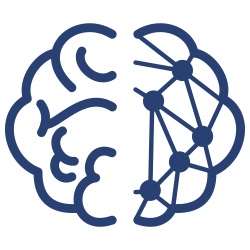m (Add Atomic Desktops SIG) |
m (→Silverblue) |
||
| Line 426: | Line 426: | ||
=== Silverblue === | === Silverblue === | ||
{{admon/note|This SIG is currently dormant. You may want to join the [https://fedoraproject.org/wiki/SIGs/AtomicDesktops Fedora Atomic Desktops SIG].}} | |||
We like the Silverblue variant, and we want to co-ordinate efforts towards making it a first-class edition of Fedora. | We like the Silverblue variant, and we want to co-ordinate efforts towards making it a first-class edition of Fedora. | ||
Revision as of 14:41, 25 September 2023
The Fedora Special Interest Groups (SIGs) are teams within the Fedora Project that are less formal than official subprojects. The SIGs are sometimes a first stage in the development of new projects within the Fedora Project.
Creating a SIG
A SIG is a lightweight structure with very little red tape. If you're interested in forming one, see Creating a Fedora SIG.
Introduction to some SIGs
Ada
Maintainers of Ada packages in Fedora are strongly encouraged to subscribe to the Fedora Ada mailing list. Anyone else who is interested is also welcome to subscribe.
AI/ML
The AI/ML SIG is a coordination point for people and groups working to improve AI/ML tooling in Fedora. Anyone interested is welcome to join us on Matrix or Discourse.
Alternate Architectures
The purpose of the Alternate Architecture SIGs is to promote fedora on different architectures.
Currently there are active teams for:
The following teams are looking for members:
No longer active architectures are:
Amateur Radio
Goal of Amateur Radio group is to improve the Fedora collection by adding packages for amateur radio (Ham Radio) operators and SWLs.
Asahi
The goal of this SIG is to help the folks working on support for ARM-based Apple Macintosh computers (otherwise known as "Apple Silicon Macs"). And to produces an image for those that want to run Linux on Apple Silicon devices.
Astronomy
Goal of Fedora Astronomy group is to gather people interested to improve support for astronomers and astrophysicists.
Atomic
The Fedora Atomic Working Group works to bring integrate new OS technology and tools from Project Atomic into Fedora.
Atomic Desktops
Co-ordinate efforts related to all Fedora Atomic Desktops (rpm-ostree based) variants of Fedora: Silverblue, Kinoite, Sericea, Onyx.
Audio Creation
Our goal is to make Fedora the best free/open-source platform for computer-based music production, audio mastering, and audio editing.
Big Data
The Big Data SIG, in grand Fedora style, aims to make Fedora the best platform for all things related to Big Data.
Bug Triage
Fedora Bug Triage attempts to manage the flow of bug reports filed against other Fedora projects. They stand to prevent the other project members being overwhelmed by bug reports, eliminating trivial bugs, removing or correcting flawed or inadequate reports, and making sure that maintainers are able to get things done.
Continuous Integration
The Fedora Continuous Integration SIG develops test automation system for Fedora. As well as tools and workflows for generic Continuous Integration.
Cloud
The Fedora Cloud SIG works to make Fedora successful on all major cloud platforms, public and private.
Desktop
The Desktop SIG strives to make Fedora a very good desktop distribution. The goal is to produce a more targeted desktop spin while maintaining traditional Fedora strengths such as security and commitment to free software. The Desktop SIG will develop and release the "Fedora Desktop" live CD
DNS
The DNS SIG attempts to improve name resolution implementations available on Fedora. The goal is to have fully-featured and privacy enabled name resolution, while still working on all common networks. Both on servers and workstations.
DotNet
The DotNet SIG is a group of Fedora contributors that maintain dotnet (and related) packages in Fedora. The goal of this group is to help to anyone interested in dotnet and to support others in creating and maintaining dotnet packages. Anyone interested in C# / dotnet is welcome!
Education
The mission of the Fedora Education SIG (Edu SIG) is to optimize Fedora for use by teachers and learners, both within and outside of the context of educational institutions.
We do this by building, maintaining, and evangelizing a strong ecosystem of educational packages within Fedora and by supporting learners in using these packages as tools to reach their curricular goals.
ELN (Enterprise Linux Next)
The ELN SIG maintains ELN buildroot and compose
EPEL
EPEL (Extra Packages for Enterprise Linux) is targeted at filling the gap between the complete Fedora Collection and the packages that are maintained in Enterprise Linux. We are a community of individuals focusing on package maintenance and infrastructure to provide as many packages as possible to the consumers of Enterprise Linux. The EPEL SIG is led by a steering committee.
Erlang
The mission of the Erlang SIG is to encourage the packaging of Erlang projects in Fedora.
FLTG
FLTG (Fedora Language Testing Group) takes care of the Fedora testing activities: take initiative to conduct the Fedora test days, update necessary wiki pages, prepare test cases, get things coordinated and organized for the testers.
Fonts
The Fonts Special Interest Group is an informal group of Fedora Linux contributors. It is dedicated to improving fonts availability and text rendering/layouting in the distribution and its other Linux derivatives.
Join us and help:
| Activity | OS Developer | Translator | Content Writer | Designer | People Person |
|---|---|---|---|---|---|
|

|
||||
|

|
||||

|
|||||
|

|

|

|
||
|

|

|

|
||

|

|

| |||
|

|

|
Any font or text-related activity can be tackled, as long as the result is free/libre and compatible with the Fedora objectives.
The current SIG task list is published here.
Formal Methods
"Formal methods" are techniques that use mathematics to prove that models of software, hardware, or systems will or will not have certain behaviors. To be practical, they must be automated using tools. The goal of the Formal Methods SIG is to make it easy to install formal methods tools in Fedora, ease learning how to apply them, encourage the development of "open proofs" (where an implementation, proofs, and required tools are all FLOSS), and to provide feedback to toolmakers so that the tools in Fedora can become more powerful, more scaleable, and easier to use together.
Games
Goal of Games SIG is to make Fedora the best Free software and open source gaming platform there is for both developers and users.
Geographic Information System
GIS is an initiative aimed to pack GIS technology related OSS in Fedora/EPEL and turn Fedora/EPEL to be the best chioce for a GIS platform.
Go
Goal of Go SIG is to bring together all people that are interested in Go in Fedora, be it packagers, developers and/or users and working on improving the overall experience.
GraphQL
The Fedora GraphQL SIG mission is to maintain, grow, guide and promote best practice of the development of applications using GraphQL within our infrastructure.
Heterogeneous Computing (HC)
Goal of Heterogeneous Computing SIG is to encourage the packaging and accessibility of heterogeneous computing projects in Fedora and EPEL. This includes machine learning, OpenCL, and scientific computing. E.g. ROCm.
Independent Software Vendor (ISV)
The ISV can be anything from a one- or two-man shop to a software design and development powerhouse. Fedora is a great platform for showing off your product, especially to community developers who might be interested in contributing code, plugins, or feedback.
i3
The Fedora i3 SIG. The i3 is a tiling window manager for X11.
Java
The Java SIG is a group of Fedora contributors that contribute towards Java in Fedora. Their mission is to provide high-quality Java applications and environment to Fedora users and developers and to support each other in the maintenance.
Join
The Fedora Join SIG aims to maintain channels for prospective contributors to engage with the community, converse with existing members, make friends, find mentors, get a feeling of what and how the community does in general, and reduce the learning gradient that joining a new community entails -- and make it more enjoyable!
KDE
The KDE SIG is a group of Fedora contributors that maintain KDE packages in Fedora. Their mission is to provide high-quality, usable KDE software packages to Fedora users and developers and to support one another in maintaining those packages.
KubeDev
The KubeDev SIG is a group of Fedora community members interested in using, developing, extending kubernetes for Fedora components and services.
LibreOffice
The goal of this SIG is to coordinate packaging of Libreoffice Suite and related packages.
Live
The Fedora Live SIG is dedicated to producing live content like video game livestreams or live community podcasts.
Live DVD
Our Mission is to provide a stable Live DVD per stable release of Fedora.
Live Upgrade
If you want to participate in efforts to make live upgrades smoother, join the Live Upgrade SIG.
LXDE
The LXDE SIG is a group of Fedora contributors that contribute towards LXDE in Fedora. Their mission is to define a high-quality LXDE experience to Fedora users and developers in maintaining packages and helping each other in all LXDE related efforts.
|
LXQt
The LXQt SIG is a group of Fedora contributors that contribute towards LXQt in Fedora. Their mission is to define a high-quality LXQt experience to Fedora users and developers in maintaining packages and helping each other in all LXQt related efforts.
This SIG is very similiar to LXDE cause both projects are connected.
|
Machine Learning
The Machine Learning SIG's goal is to make Fedora the best platform for all things related to Machine Learning. We aim to act a hub in the gap between the Astronomy, Bigdata, Fedora Medical and Science and Technology SIGs.
Medical
The Fedora Medical SIG is a group of Fedora contributors that are interested in healthcare, medical, biology, bioinformatics and etc.
Minimal Core
The Fedora Minimal Core SIG is a group of people interested in maintaining Fedora's minimal package set. This is the Core group in the comps file, and any packages installed by the Anaconda installer by default.
Mobility
The Fedora Mobolity SIG is a group of Fedora contributors that are interested in Fedora on small devices. Initially aimed at supporting NetBooks, Mobile Internet Devices (MIDs), Tablets etc. The plan was originally to expand to also cover things such as Set Top Boxes (STBs), but the SIG became inactive and was resurrected again in 2020 to work on booting Fedora on smartphones, starting with the Pine64 PinePhone.
Mono
The Mono SIG is a group of Fedora contributors that maintain Mono (and related) packages in Fedora. Their goal is to provide high-quality and usable mono software packages to Fedora users and developers and to support one another in maintaining those packages.
NeuroFedora
The NeuroFedora is a group of researchers and Fedora contributors that are interested in having a dedicated spin/application bundle to be used by the neuroscience and neuroimaging community. NeuroFedora builds on top of several other spins and SIGs including BigData, Data Science, Fedora Medical, Machine Learning, Octave, Robotics and Science and Technology.
NoSQL
The NoSQL SIG is a group of Fedora contributors that maintain NoSQL-related packages in Fedora. Their goal is to provide high-quality and usable NoSQL software packages to Fedora users and developers and to support one another in maintaining those packages.
Package Review
This SIG is currently in its infancy and things are still being organized. The job is to process new package review submissions and review them for quality and adherence to the Packaging Guidelines. As this is the initial experience for many new contributors to the Fedora Project, we also work towards making this procedure as enjoyable as possible. Anyone is welcome to join. Obviously it is necessary for one to already be a packager in order to review packages, but there are many tasks that can be done by anyone, and participation in the SIG is a good path to sponsorship.
Pantheon
A SIG for people who are interested in improving the state of the Pantheon DE in Fedora.
This includes porting packages from Elementary OS and testing libraries, packages and applications.
Perl
This is a group devoted to packaging Perl modules and applications for Fedora.
PHP
To assist packagers in bringing PHP-related packages to Fedora and assisting in their continued maintenance by providing timely reviews, acting as secondary package owners and assisting with related security issues.
|
Printing
The Fedora Printing Project's goal is to create a good printing experience on Fedora.
|
Python
Fedora loves Python and this SIG is for people who would like to see this relationship flourish.
PyTorch
The intent of the PyTorch SIG is to bring together all people that are interested in AI/ML/HC/HPC in Fedora, be it packagers, developers and/or users and working on improving the overall experience. We intend on pushing forward native PyTorch support in Fedora. This includes collaborating with other groups to enable hardware acceleration and needed package dependencies.
Quantum Computing
Quantum SIG is a group of Fedora contributors/community members who are interested in experimenting with Quantum computing within Fedora, to see what is possible and to build a solid knowledge base for any possible projects that may arise.
R
R is a free software environment for statistical computing and graphics. This SIG is for people who are interested in improving R support in Fedora, which includes packaging the core runtime, add-on packages, IDEs and other components.
Red Team
The Red Team SIG is the cybersecurity community for Fedora that produces offensive tooling, curated exploits, standards, and reference architectures.
Robotics
The goal is to bring packages of open and free software related to robotics and educational software for robotics into Fedora and make Fedora fit to power (mobile) robots. Fedora Robotics SIG
Ruby SIG
A SIG for people who are interested in improving the state of Ruby in Fedora. This includes packaging Ruby libraries and applications, setting and improving standards for packaging them as RPM's and maintaining Ruby packages for Fedora.
|
Rust SIG
A SIG for people who are interested in improving the state of Rust in Fedora. This includes packaging Rust libraries and applications, setting and improving standards for packaging them as RPM's and maintaining Rust packages for Fedora.
|
Science and Technology
The purpose of the Fedora Sci-Tech SIG is to improve the number and quality of packages available for scientific and technical users.
Fedora Science and Technology SIG
Security
The Security SIG has goals of developing secure-coding (and other) training, code audits, and working with security vulnerabilities.
SELinux Confined Users
People who use and/or test SELinux's user confinement in Fedora in order to improve SELinux policies to increase security and user experience (including for default Fedoras without user confinement). Also, the SIG aims to make the "confined user" capability as smooth as the Fedora default without confinement so that confinement becomes usable by average users. Additionally, the SIG aims to propagate the possibility/capability about user confinement but also about the possibility to easily contribute to that. This SIG is for all kinds of security enthusiasts, from beginners to SELinux experts. It is very informal: contributors might review the discourse topic (especially the opening post and this one) and say "Hi" in the topic. For any kind of help about user confinement or related reports, feel free to open a ticket in our pagure repo, or use the #confineduser tag in ask.Fedora for technical "how to get X done in Fedora Linux" questions. The SIG has no meetings.
Server
Our goal is to make Fedora suitable for server deployments and the perfect base for enterprise systems like RHEL.
Silverblue
We like the Silverblue variant, and we want to co-ordinate efforts towards making it a first-class edition of Fedora.
Social Science
An emerging SIG that wants to make Fedora a recommendable distribution for social scientists; and that is broadly interested in socio-technical issues.
Sound
We are to create free sound themes for fedora, using only FOSS software available from the Fedora repositories.
Spins
A SIG for technical review of Spins contributed by the community.
Stateless Linux
The Stateless Linux project is an OS-wide initiative to ensure that Fedora computers can be set up as replaceable appliances, with no important local state.
SSCG
SSCG (Source String Contextualizing Group) provides meaningful descriptions of the source strings for translators to ensure the correctness and quality of the translations. Thus facilitating good end user experience of the localized Fedora applications.
Store
A SIG devoted to getting a store running, both for users looking for one-off purchases and for Ambassadors who need swag in bulk.
Sway
The goal of the Sway SIG is to provide a good user experience for sway, the tiling Wayland compositor and replacement for the i3 window manager.
Usability
Fedora Usability aims to provide coherence, accessibility and intuitiveness for all people using Fedora and its associated resources.
WASM
A SIG dedicated to connect users interested in WebAssembly.
Workstation
The Fedora Workstation Working Group is the main team behind Fedora's official desktop edition.
Fedora Workstation Working Group
Xfce
The Fedora Xfce SIG works on the integration of the Xfce desktop environment. The aim is to establish Xfce as desktop environment besides GNOME and KDE.
|
3D Printing
The Fedora 3D Printing SIG's goal is to make Fedora the best platform for 3D printing.
Subcategories
This category has the following 10 subcategories, out of 10 total.
Pages in category "SIGs"
The following 134 pages are in this category, out of 134 total.
A
- SIGs/Ada
- SIGs/AI-ML
- SIGs/AlternativeArchitectures
- AmateurRadio
- Architectures/ARM
- Architectures/IA64
- Architectures/MIPS
- Architectures/MIPS Fedora 11 12 13
- Architectures/MIPS64
- Architectures/Parisc
- Architectures/PowerPC
- Architectures/PowerPC/Meetings/FUDCon Lawrence 2013
- Architectures/s390x
- Architectures/SPARC
- Atomic WG
- Audio Creation
G
S
- SIGs/Asahi
- SIGs/bigdata
- SIGs/bigdata/es
- SIGs/BiosBoot
- SIGs/Btrfs
- SIGs/Budgie
- SIGs/CI
- SIGs/DataEngineering
- SIGs/DeepinDE
- SIGs/Design Software
- SIGs/Desktop
- SIGs/DNS
- SIGs/DotNet
- SIGs/eBPF
- SIGs/Education
- SIGs/ELN
- SIGs/Erlang
- SIGs/FedoraMini
- SIGs/Flatpak
- SIGs/FormalMethods
- SIGs/Games
- SIGs/Go
- SIGs/GraphQL
- SIGs/Grid Computing
- SIGs/HC
- SIGs/Java
- SIGs/Java/pt-br
- SIGs/Join
- SIGs/KDE
- SIGs/KubeDev
- SIGs/Libreoffice
- SIGs/Live
- SIGs/LiveDVD
- SIGs/LiveUpgrade
- SIGs/Medical
- SIGs/Metrics
- SIGs/Minimal Core
- SIGs/MkDocs
- SIGs/ML
- SIGs/Mono
- SIGs/Music & Audio
- SIGs/NeuroFedora
- SIGs/NeuroFedora/es
- SIGs/NoSQL
- SIGs/OpenStack
- SIGs/Package Review
- SIGs/PHP
- SIGs/PHP/pt-br
- SIGs/PowerManagement
- SIGs/Python
- SIGs/PyTorch
- SIGs/QA
- SIGs/QuantumComputing
- SIGs/R
- SIGs/Red Team
- SIGs/RISC-V
- SIGs/Robotics
- SIGs/ROCm
- SIGs/Ruby
- SIGs/Ruby/es
- SIGs/Rust
- SIGs/Security
- SIGs/Server
- SIGs/Sound
- SIGs/Source-git
- SIGs/Stewardship
- SIGs/Store
- SIGs/Store/PotentialDistributors
- SIGs/Store/ProposedItems
- SIGs/Xfce
- SIGs/XR
- Atomic/PRD
- CoreOS/PRD
- User:Roshi/QA/Atomic PRD
- Spins SIG
- SSCG
- StatelessLinux
- StaticAnalysis
- Subprojects
- Subprojects/es
- Subprojects/ko
- Subprojects/pt
- Subprojects/pt-br





